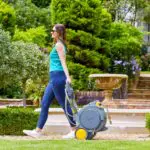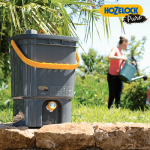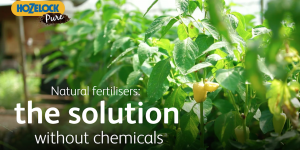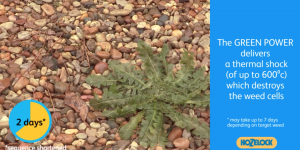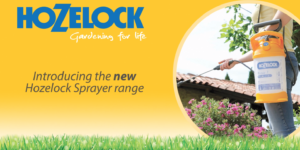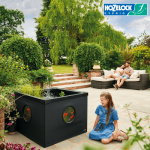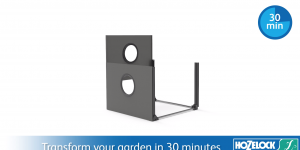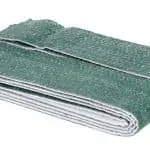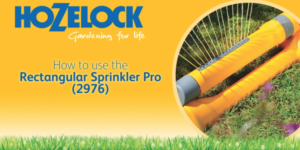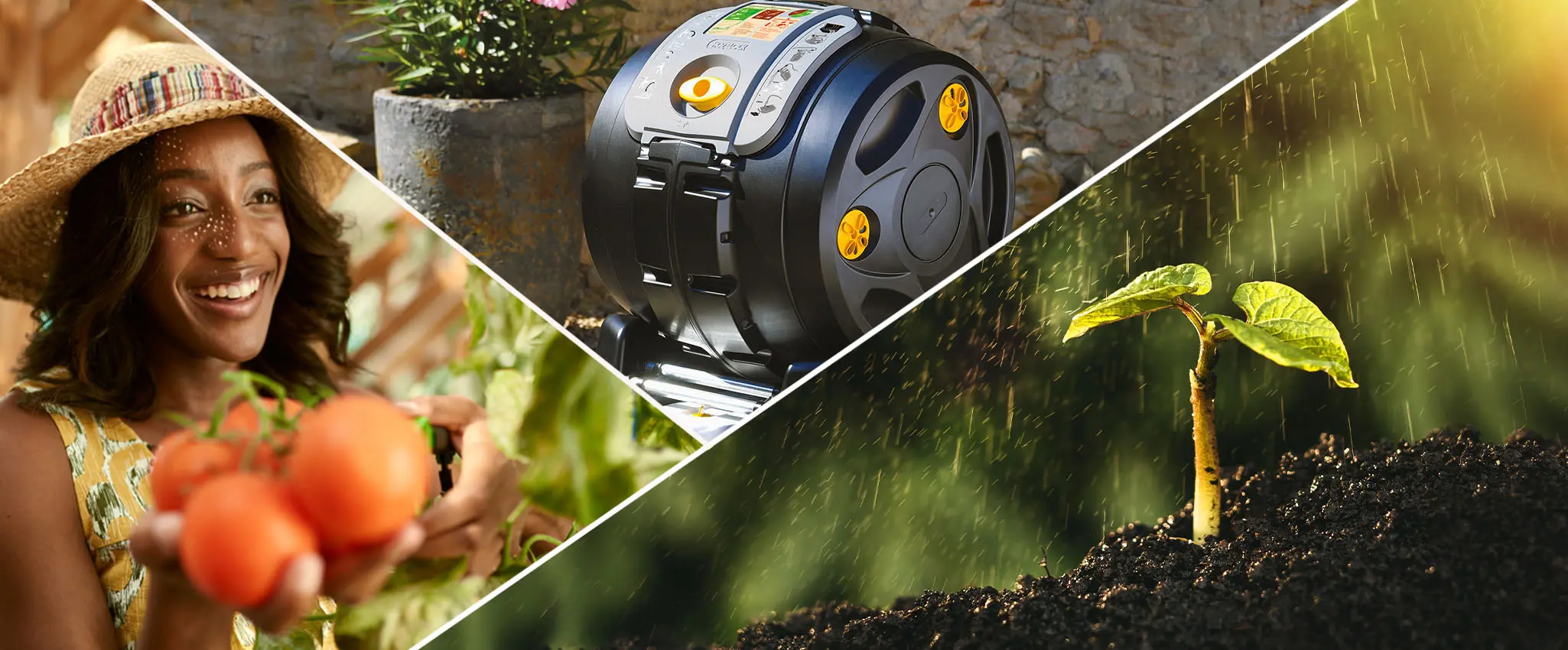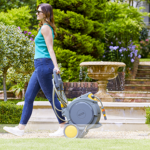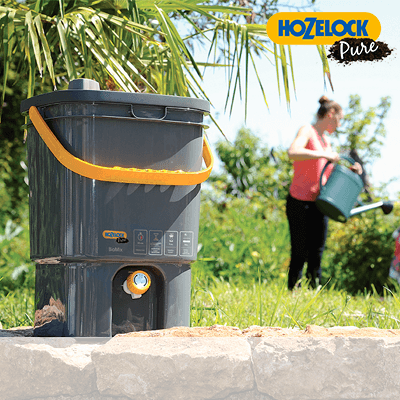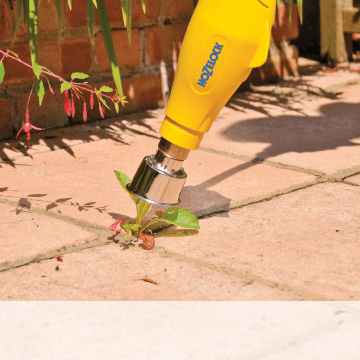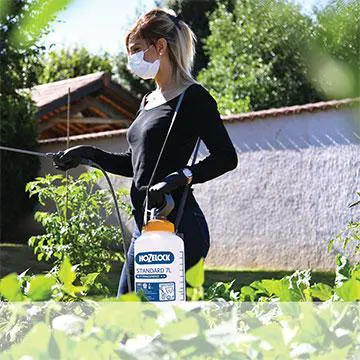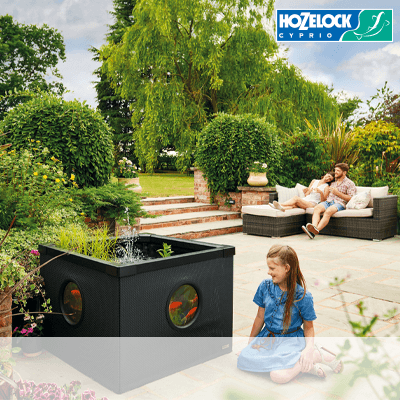The Top 10 Benefits of Composting include improving your soil, reducing greenhouse gases, replacing chemical fertilisers and much more!
1. Improves Crop Yield
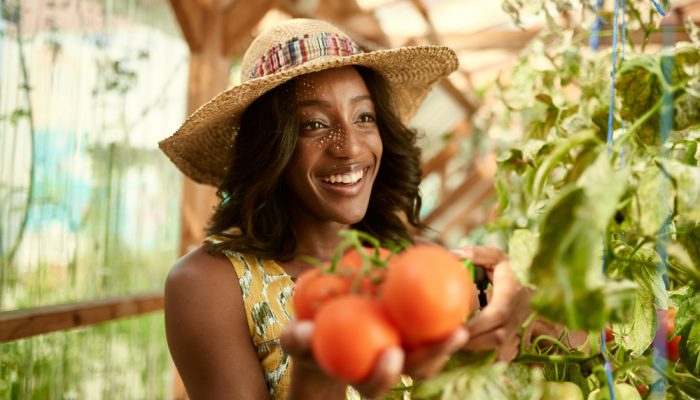
Composting is a great way to start maximising your crop yields. Well-rotted compost can contain levels of nitrogen, phosphorus and potassium. By adding compost to the garden, your crops will receive the nutrients they need to thrive. You can promote crop health and growth simply by composting. Results will vary depending on what you add to the compost mix. As long as you are adding the correct materials, your plants will be far healthier in the long run. For further information on what to add, see our Guide To Composting. Crop yields can also be maximised by soil testing, purchasing good quality seeds and planning for extreme weather such as flooding. Read our Top 10 Ways To Protect Your Garden From a Flood.
2. Reduces Greenhouse Gas Emissions
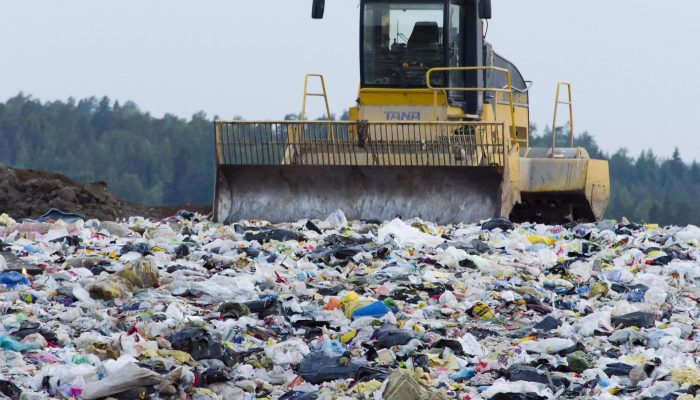
When food is thrown out it ends up in landfill, deprived of oxygen and rotting away. As the waste rots and decomposes, it releases a greenhouse gas called methane. Approximately 20% of all global emissions are caused by methane gas, being the 2nd biggest contributor to climate change and global warming. In the UK, it is estimated that only 6% of all food waste is composted. The difference between landfill sites and composting is that methane is not present when composting at home. Most composting methods use oxygen (aerobic) to help break down the mixture, and methane-producing microbes aren’t active when met with oxygen. There are other methods of composting such as the Bokashi Composter. This method does not use oxygen (anaerobic) but instead uses a dry mixture, breaking down compost and keeping the process methane-free.
3. Replaces Chemical Fertilisers
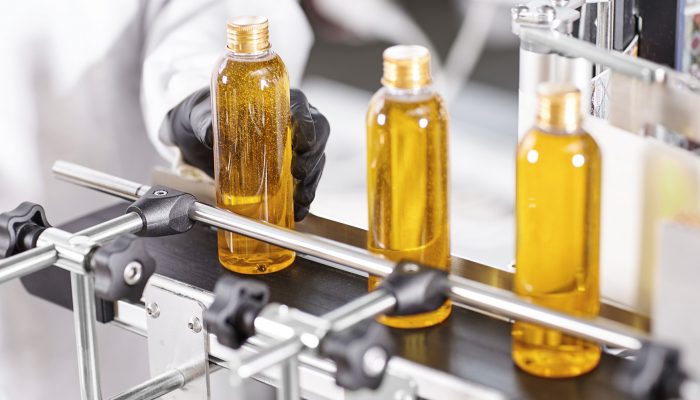
Chemical fertilisers can cause water pollution and lead to a toxic build-up. When used on a long-term basis, they can contribute to soil acidification, a reduction in organic matter & beneficial species, preventing plant growth, growing pests and even leading to the release of greenhouse gases. Eco-friendly fertilisers can be created within the composting process. The EasyMix 2-in-1 Composter naturally creates a bottled fertiliser, that can be connected to your hose and sprayed around the garden. Natural fertilisers are free of dangerous chemicals, they maintain your soil’s PH and they will help your garden flourish.
4. Decreases Water Contamination

Rotting food waste is a major contributor to climate change and global warming. The actual transportation of this waste is also a contributor to air and water pollution. As food waste naturally produces a brown liquid (leachate), it often leaks during the transportation process, coming into contact with ground and surface water. Simply by decreasing the amount of waste sent to landfills, the risk of water contamination will be reduced. Refraining from pouring cooking fat, grease, oil, cleaning agents or household chemicals down the toilet or sink will help to reduce water pollution.
5. Improves Soil Quality
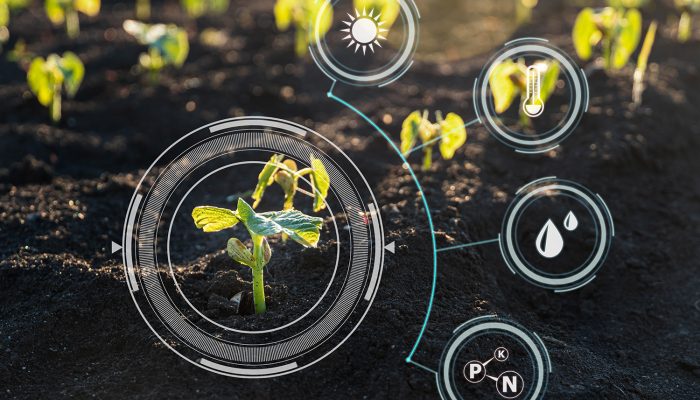
Composting helps plants to grow stronger and healthier, a great addition to garden beds, vegetable gardens, potted plants, trees and much more! Compost also improves your soil’s nutrient retention abilities, by increasing its Cation Exchange Capacity (helping to pass around the nutrients). To understand more about your soil’s requirements, use a soil testing kit and receive readings about your soil’s pH, calcium, phosphorus, and more.
6. Helps Water Absorption
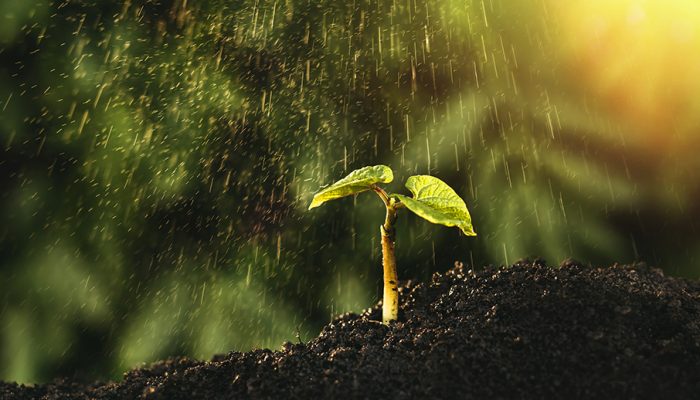
Adding compost to your soil will help in its water retention capabilities. Retaining water is important especially in the dryer months, as the roots of your plants will have access to more water. This also helps to reduce soil crusting, improving moisture absorption and dispersion, producing stronger and far healthier plants.
7. Takes as little as 6-8 Weeks

Many composters on the market can take anywhere from six months to twelve months to create a finished compost mix. The Hozelock EasyMix 2-in-1 Composter can take as little as 6-8 weeks in warmer temperatures. Its black exterior, air ventilation, tumbling drum capability and ergonomics all assist in the fast production of compost. By rotating your mixture, shredding organic waste and balancing your green and brown materials, your compost will be ready in no time!
8. Attractive Appearance
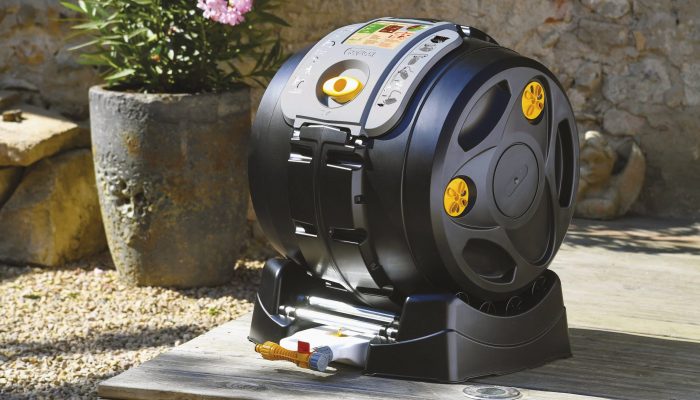
Some composting methods can be smelly and unattractive, especially in larger gardens as areas are often created specifically for composting. However, adding your food waste to these piles can become an unfavourable task. Using a sealed indoor composter such as the EasyMix 2-in-1, minimises any smells and rodents. Due to its attractive appearance, the EasyMix promotes the convenient turning of compost, helping to accelerate the composting process.
9. Supports Sustainability
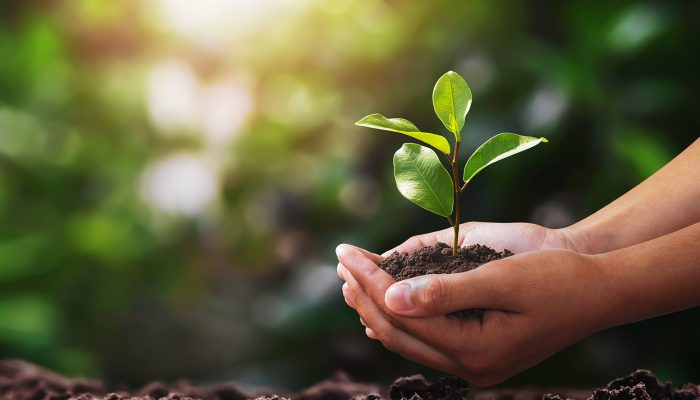
Sustainability practices help to protect our ecosystem, improve the quality of our lives and ensure natural resources will be around for future generations. The method of composting has been around since 2350 BC. Without individuals taking the initiative to compost, the practice of composting will gradually decline throughout generations.
10. Requires minimal labour
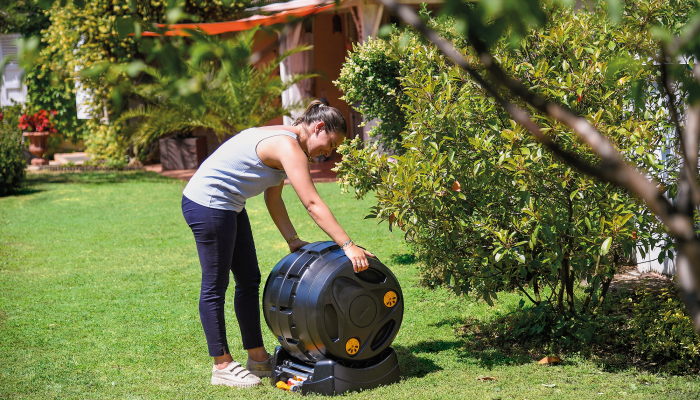
Most composting methods will require some amount of labour, however some methods are much more convenient than others. To ensure a rich compost, turn the mix once or twice a week, manage moisture levels and ensure good oxygen levels. The EasyMix 2-in-1 Composter has a simple-to-use lockable hatch, easy-to-use rotation, liquid food collector, adjustable air vents and the ability to roll around the garden.
We hope you enjoyed reading our blog on the Top 10 Benefits of Composting. If you have made it this far, make sure to leave a comment below!


